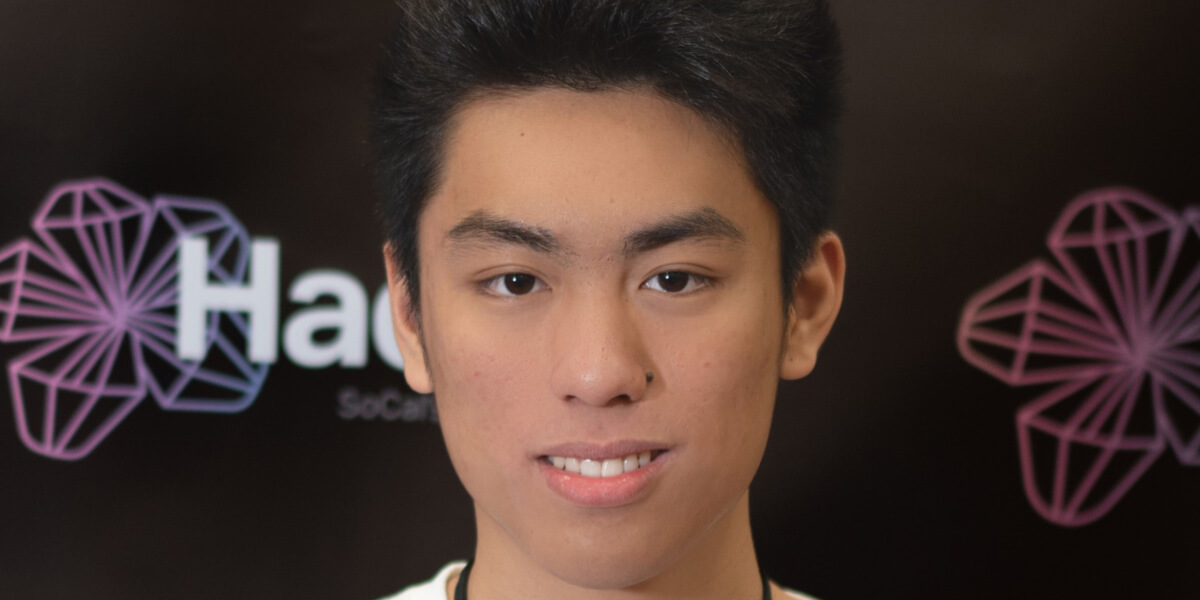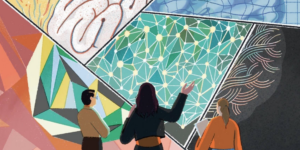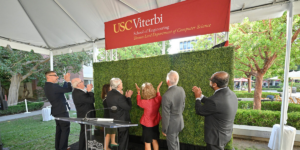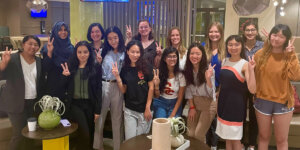
Qian received a Computer Research Association Undergraduate Research Awards honorable mention for his research using large language models to improve autonomous driving safety. Photo/Courtesy of James (Yuxi) Qian.
Each year, the Computer Research Association (CRA) Outstanding Undergraduate Researcher Awards (URA) program recognizes undergraduate students in North America with outstanding potential in the field of computer science. This year, USC computer science sophomore James (Yuxi) Qian received an honorable mention for his work applying large language models (LLMs) to autonomous driving systems.
Qian, a triple major in computer engineering and computer science, applied mathematics, and cognitive science, conducts his research under the supervision of Yue Wang, an assistant professor of computer science. The system, described in a NeurIPS 2023 workshop paper, significantly outperforms the state-of-the-art autonomous driving systems, reducing collisions by 30%. We sat down with him to find out more about his research.
Congratulations, James! Could you give us a brief overview of your research project? Why is it important?Autonomous driving has been in the sights of both private industries and the research community. While the traditional method is rooted in a detection-prediction-planning framework, our project reformulated it into language modeling tasks to improve generalization capabilities in novel and unforeseen driving scenarios. We utilized LLMs as cognitive agents to integrate human-like intelligence into autonomous driving systems with auxiliary cognitive functionality.
“We utilized LLMs as cognitive agents to integrate human-like intelligence into autonomous driving systems.”
What inspired you to pursue this topic?
Recent studies have shown that large language models possess significant strengths in reasoning and generalization, so I wondered if they could also demonstrate comparable skills in autonomous driving by leveraging humans’ intrinsic reasoning capabilities and experiential knowledge.
Could you provide an overview of the major insights from your study?
In our experimental work involving GPT-Driver and Agent-Driver, we observed outstanding performance in few-shot learning and planning. Agent-Driver (and GPT-Driver) significantly outperforms the state-of-the-art autonomous driving systems, achieving more than a 30% enhancement in collision reduction during motion planning. Even when fine-tuned with just 1% of the data, the motion planner within Agent-Driver surpasses the performance of the best existing systems (i.e., UniAD, CVPR2022 Best Paper) trained on complete datasets.
“USC offers abundant opportunities for undergraduates in research.”
Why did you decide to embark on three majors at two different schools? Is it challenging to balance the workload?
The Viterbi School of Engineering and the Dornsife College of Letters, Arts, and Sciences offer synergistic perspectives. Viterbi provides a robust foundation in engineering and problem-solving approaches, whereas Dornsife enables a deeper focus on the nature of the problems. Given the century-long evolution of AI, as well as a recent emphasis on deep learning, I find it imperative to understand the thought processes of researchers across different disciplines. Managing the workload is challenging, yet I find it within my capacity.
What advice do you have for other undergraduate students who are considering undertaking research in computer science?
For undergraduates contemplating research in computer science, my advice is succinct: Think More, Ask More, and Do More. Adopt a mindset geared towards inquiry and critical analysis. Get in the habit of asking questions, not just to your professors and peers, but also through self-driven exploration. Finally, seek out practical experience to challenge and expand your skills; USC offers abundant opportunities for undergraduates in research through programs such as CURVE (Center for Undergraduate Research in Viterbi Engineering) or SURE (Summer Undergraduate Research Experience). Focusing on these elements can transform your undergraduate years into a profound journey of discovery and growth in computer science.
Published on April 12th, 2024
Last updated on April 12th, 2024













